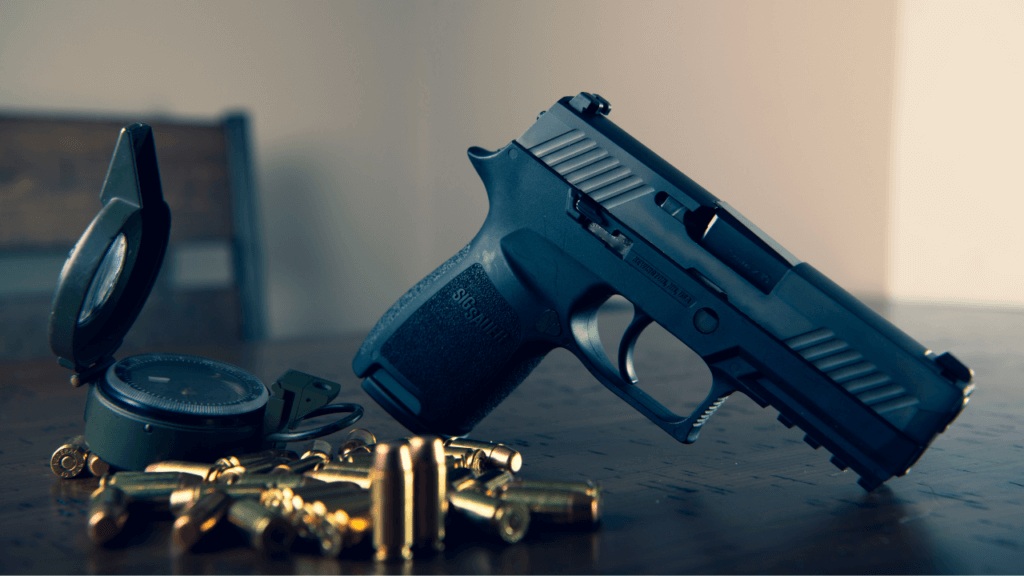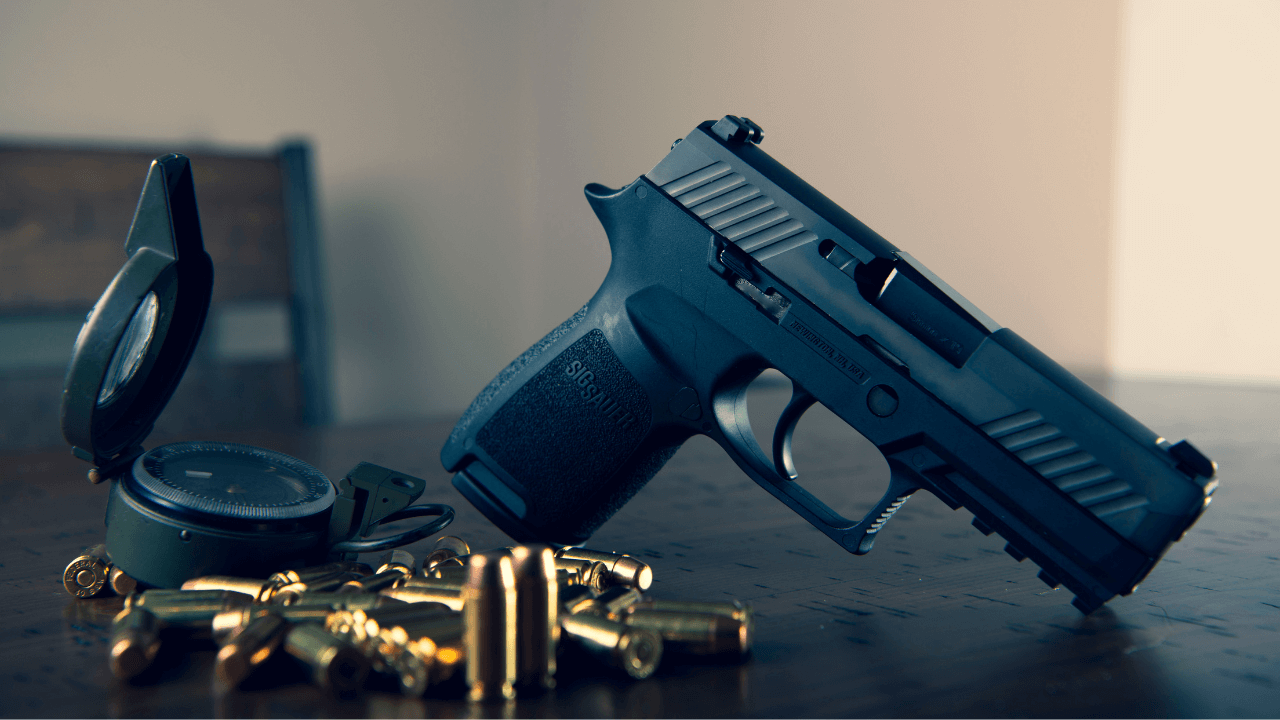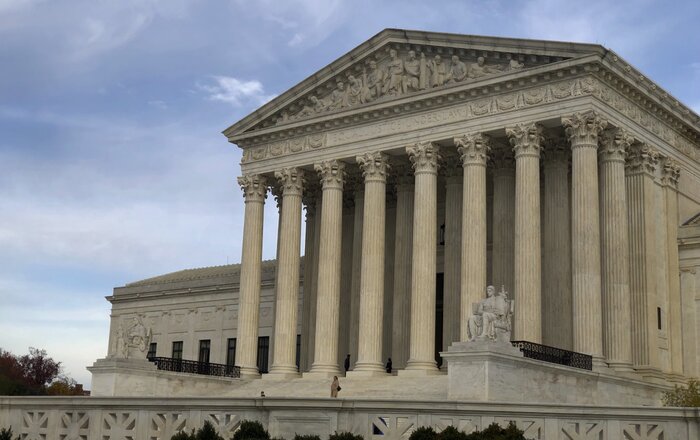Written By:
 Adam H. Rosenblum
Adam H. Rosenblum
Your Dedicated & Trusted Legal Team
3 Generations & 100+ Years of Combined Legal Experience

New Jersey has some of the strictest gun laws in the country, and there are a variety of laws that allow the courts or law enforcement to seize weapons and force firearms forfeiture.
Whether one has been accused of domestic violence, has a restraining order entered against them, or has been otherwise found to be ineligible for a Firearm Identification Card, firearms forfeiture in New Jersey is a complex matter. This guide will help those with firearms forfeited or seized understand the law in this area. If you are in this situation, contact a criminal defense attorney from Rosenblum Law for a free consultation on how we can protect your rights and potentially get your firearms back.
Understanding Firearms Forfeiture in New Jersey
There is no legal definition in New Jersey of firearms forfeiture. However, the general definition of firearms forfeiture is that one’s firearms must be seized or voluntarily given up.
In New Jersey, a firearm includes “any handgun, rifle, shotgun, machine gun, automatic or semi-automatic rifle, or any gun, device or instrument in the nature of a weapon from which may be fired or ejected any solid projectable ball, slug, pellet, missile or bullet, or any gas, vapor or other noxious thing, by means of a cartridge or shell or by the action of an explosive or the igniting of flammable or explosive substances.”
Firearms also includes air guns, spring guns, or pistols of another nature capable of shooting a projectile ⅜-inch diameter sufficient to injure another person. There are a variety of laws and circumstances in which firearms forfeiture becomes a possibility. In general, Section 2C:64-1 states that firearms that are illegally possessed, obtained, carried, or used are subject to forfeiture.
How Weapons Are Seized
Under the Domestic Violence Act, law enforcement on the scene of a domestic violence call must determine if there are firearms on the premises or in the possession of the person charged with domestic violence. If so, law enforcement must seize these firearms, as well as the person’s FID and any handgun permit.
If one is ordered to forfeit firearms due to temporary restraining orders (TROs) or final restraining orders (FROs) , law enforcement may come to seize firearms if they are not surrendered voluntarily. The courts ensure that all firearms are forfeited by having law enforcement check the inventory of forfeited firearms against the state’s firearms registry.
What to Expect in a Weapons Forfeiture Hearing
In a weapons forfeiture hearing, someone must prove that they should have the right to retain their firearms. In other words, it is up to them and their attorney to convince the court that their firearms should not be taken or should be returned.
In preparing for the weapons forfeiture hearing, one must gather evidence supporting their claims that their weapons should be returned. This may include documentation, witnesses, and other evidence. During the hearing, one presents this evidence and arguments to the judge as to why the guns should be returned. Be ready for the prosecution to argue that the guns should not be returned, and be ready to answer those arguments.
It is very important to have an attorney present in a firearms forfeiture hearing. The attorney will be able to use the specific circumstances of the case to determine the best legal strategy to retain or regain firearms privileges.
What are the Grounds for Firearms Forfeiture in NJ?
Any weapons used in a crime are subject to seizure or forfeiture. In addition to this, there are many laws in New Jersey that can result in someone experiencing firearms forfeiture.
Domestic Violence Act
Section 2C:25-21d(1) of the Domestic Violence Act allows law enforcement to seize any weapons on someone’s premises, as well as the owner’s FID and any handgun permits. To do so under this section, law enforcement must determine that the possession of firearms could lead to escalated domestic violence against the victim.
Temporary and Permanent Restraining Orders
New Jersey statutes also allow for firearms forfeiture in cases where temporary restraining orders (TROs) or final restraining orders (FROs) are issued. In these situations, it is up to the judge approving the restraining order to determine if firearms forfeiture is appropriate. In most cases, the judge will order firearms forfeiture when issuing a TRO or FRO.
If a TRO is issued, one can get their firearms back if a FRO is not approved. It can be harder to get firearms back with an FRO in place.
Revocation of Firearms Identification Card (FID)
Section 13:54-1.10 of the New Jersey Administrative Code allows authorities to revoke a firearms identification card. Any prosecutor, law enforcement officer, or citizen can petition the court to revoke a FID if the holder becomes ineligible to hold it.
According to Section 2C:58-3, those who are ineligible include people:
- Convicted of a crime in New Jersey or a felony counterpart in another state or federal jurisdiction
- Convicted of a disorderly persons offense in a domestic violence case
- Voluntarily or involuntarily institutionalized for mental health reasons
- With a physical disability that makes it unsafe for them to handle a weapon
- Who are deemed not to be entrusted with a firearm due to temperament and character
- Subject to or in violation of a TRO or FRO prohibiting them from possessing firearms
- Convicted of a weapons offense as a juvenile
If someone falls into any of the above categories, they are no longer eligible for an FID and must surrender it and any firearms in their possession within five days of no longer being eligible. If law enforcement is forced to come in and seize weapons, they can be charged with unlawful possession of a weapon as well.
Factors Considered in Firearms Forfeiture Proceedings
The legal process and procedures for firearms forfeiture depend on the reasons behind the forfeiture. If law enforcement is called to the scene of domestic violence, they must seize any firearms in possession of the person being charged.
When a TRO or FRO is put in place and gun rights are revoked as a result, the subject of the restraining order will be given a time frame in which to surrender their guns to law enforcement. If guns are not forfeited voluntarily, law enforcement may seize the weapons. Often firearms forfeiture happens so quickly that it cannot be stopped, and the gun owner must contest the forfeiture in court to get their guns back.
There are several grounds that can be used to contest firearms forfeiture in New Jersey. For example:
- If someone’s FID is being revoked, they can argue at the hearing that they are in fact eligible for an FID under the law.
- If someone has a TRO or FRO against them, appealing the restraining order on the grounds that the law was misapplied or the facts of the case were misunderstood is an option. Once the restraining order is appealed, the person can request to get their guns back.
Consequences of Firearms Forfeiture
The specific consequences for firearms forfeiture depend on whether the individual voluntarily or involuntarily surrenders their firearms.
Voluntary Surrenders
If someone voluntarily surrenders all their registered firearms, there are no additional penalties associated with firearms forfeiture. However, they lose their right to purchase firearms in the future, as their FID and any handgun permits will also be revoked. It may be possible to get an FID and firearms back if circumstances change.
Involuntary Surrenders
If someone does not voluntarily surrender all their registered firearms, they can be charged with unlawful possession of a weapon. This is a second degree crime that comes with a penalty of five to 10 years in prison, including a mandatory minimum term of 3 ½ years or half the sentence, whichever is greater.
If someone is convicted of unlawful possession of a weapon, they will also be a felon and no longer eligible to own firearms in New Jersey. The conviction will also stay on their criminal record and impact future employment and housing opportunities.
How an Attorney Can Assist Someone Subject to Firearms Forfeiture in New Jersey
An attorney can assist someone subject to firearms forfeiture in New Jersey in a number of ways, starting with the initial consultation and case evaluation. During this consultation, the attorney will gather facts, including the circumstances of seizure or forfeiture. They will review any seizure or forfeiture notices received by the owner and advise them on their chances of having their firearms returned.
The attorney can then develop a defense strategy to contest the forfeiture. This strategy will be used during the forfeiture hearing, where the attorney will advocate for the owner. The attorney will also:
- Represent the owner in other related proceedings, such as an appeal of an FRO
- Possibly challenge the legality of the seizure and forfeiture, depending on the facts of the case
- Negotiate with prosecutors and law enforcement agencies to have the guns returned
It should be clear from the list above that hiring an experienced attorney is important if you are subject to firearms forfeiture.
FAQs
All firearms that fall under the legal definition above are subject to forfeiture in New Jersey. This includes rifles, shotguns, and handguns.
Typically no, but there are exceptions. The domestic violence laws in New Jersey allow law enforcement to seize weapons on the property or person who is accused of domestic violence. If someone poses an immediate threat, law enforcement can seize weapons.
The grounds for firearms forfeiture vary depending on the situation. Being charged or convicted of domestic violence is grounds for firearms forfeiture. A TRO or FRO is also grounds for forfeiture. Someone may also be required to forfeit firearms if they are found to be ineligible for an FID. In addition, any weapons used in a crime are subject to seizure or forfeiture.
They may be able to challenge the forfeiture of their firearms, depending on the facts of the case. It may require appealing a domestic violence charge or TRO or FRO. Individuals may also appeal if they can prove circumstances have changed, or if the TRO was not finalized before the firearms forfeiture was issued. An attorney can help you evaluate your chance of a successful appeal and can guide you during the process.
The county prosecutor has 45 days to determine if guns will be returned to the owner. If they feel that it is unsafe for you to own a gun, they will file for a court order to have your firearms forfeited permanently. This results in a firearms forfeiture hearing, which can take some time to schedule. However, the process generally takes a few months.
If their firearms are permanently forfeited, they will lose their firearm rights permanently. Specifically, they will be found ineligible for an FID that allows them to own and purchase weapons.
They may be able to get your firearms back if they are forfeited if they can successfully contest the forfeiture. An attorney can help you understand your options to appeal.
As long as they forfeit all of their registered firearms voluntarily, there are no additional charges. Police will search the property and seize any firearms they find. They will then compare this to the registry of firearms the person is known to own. If they fail to surrender any firearms not found in the seizure, they could be charged with unlawful possession of a weapon.
No, you cannot transfer ownership of seized firearms to someone else during the forfeiture process. Once firearms are seized or ordered to be seized, the only recourse to getting them back is a firearms forfeiture hearing.
Call Rosenblum Law for a Free Consultation
With adequate legal representation in firearms forfeiture cases in New Jersey, you may be able to contest the forfeiture. It is important that you are honest with your attorney, provide all facts of the case, and cooperate with law enforcement. It is much easier to get your guns back if you cooperate with the forfeiture.
As soon as the firearms forfeiture has happened, contact Rosenblum Law for a free consultation and case evaluation. Our experienced firearms attorneys will be able to determine if you have grounds to contest the forfeiture, and advise you of your next steps. Contact us today for your free, confidential consultation.

 Adam H. Rosenblum
Adam H. Rosenblum
About The Author
Adam is the founding attorney and principal of Rosenblum Law. With more than two decades of legal experience in numerous areas of law practice, his primary focus is law firm management and business development.
Read MoreLatest from Our Blog



Editorial Standards
Rosenblum Law is committed to delivering informative content of the highest quality. All content is subject to our rigorous editorial standards for relevance, accuracy, sourcing, and objectivity. Everything is fact-checked by an editor and reviewed for legal soundness by one of our practicing attorneys prior to being published.
How to Cite Rosenblum Law’s Article
APA
Adam H. Rosenblum (Sep 5, 2012). Top 10 Questions to Ask a Criminal Lawyer Before Hiring Him. Rosenblum Law Firm, https://rosenblumlaw.com/top-10-questions-to-ask-a-criminal-lawyer-before-hiring-him/
MLA
Adam H. Rosenblum "Top 10 Questions to Ask a Criminal Lawyer Before Hiring Him". Rosenblum Law Firm, Sep 5, 2012. https://rosenblumlaw.com/top-10-questions-to-ask-a-criminal-lawyer-before-hiring-him/
